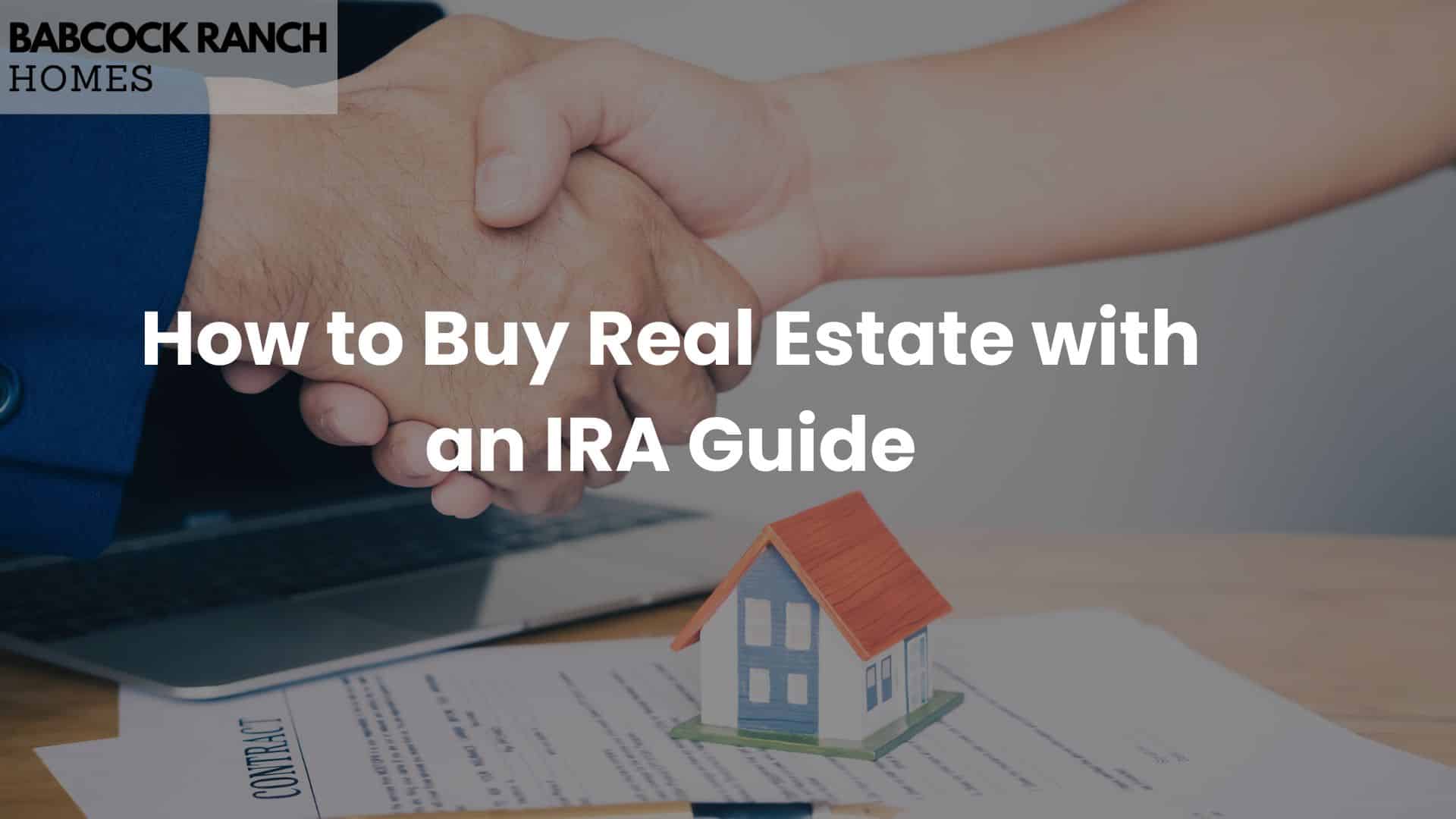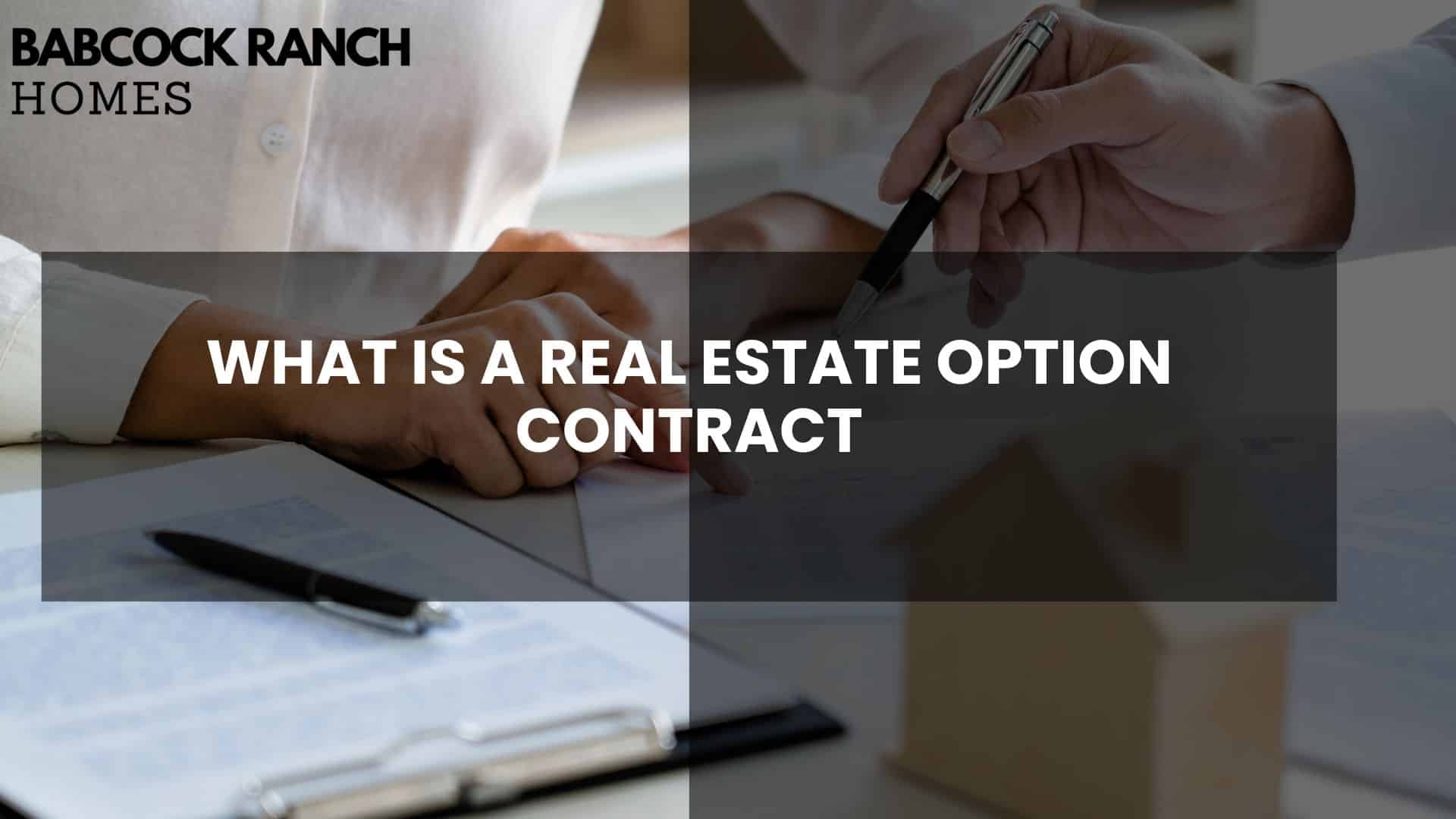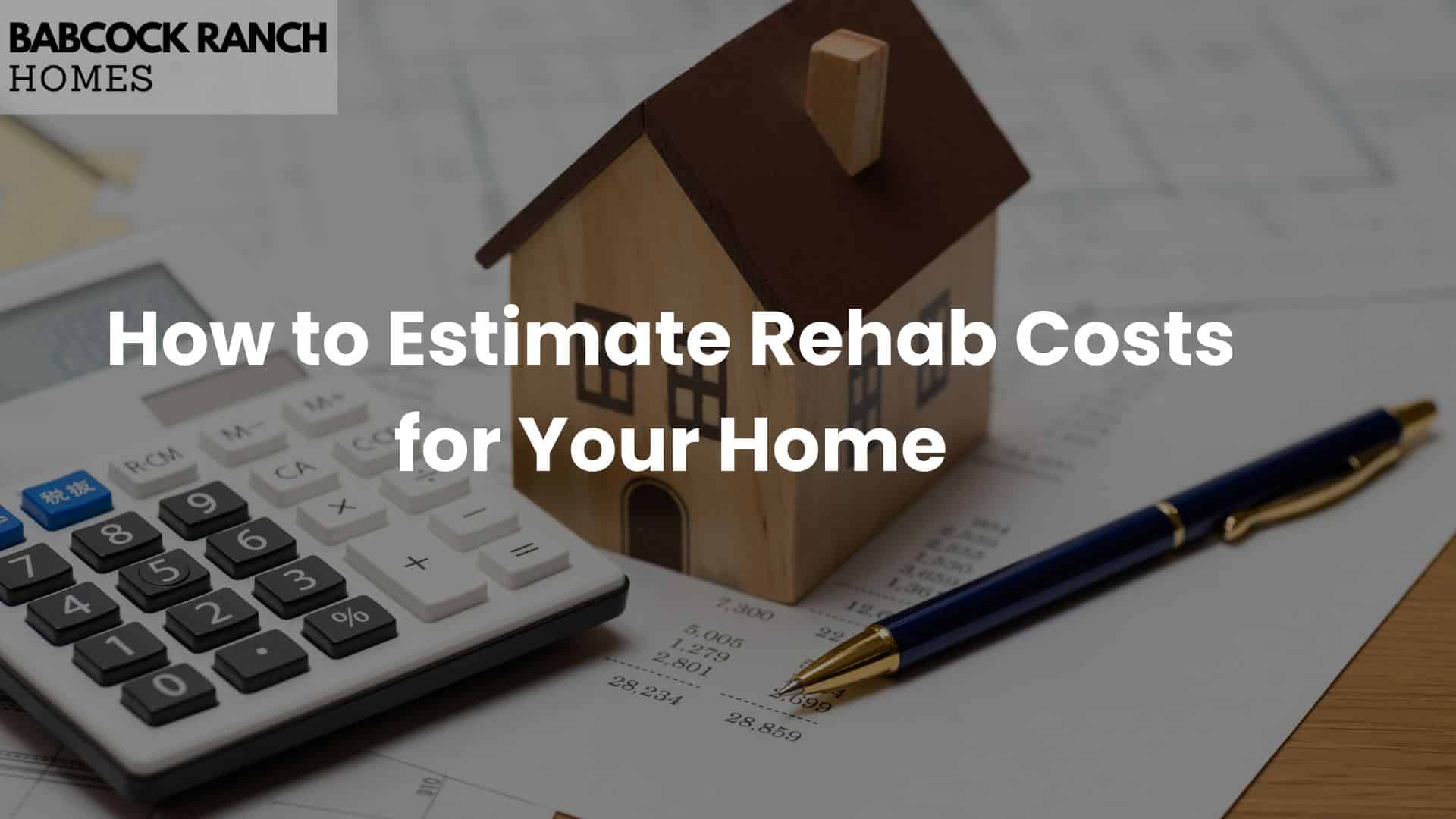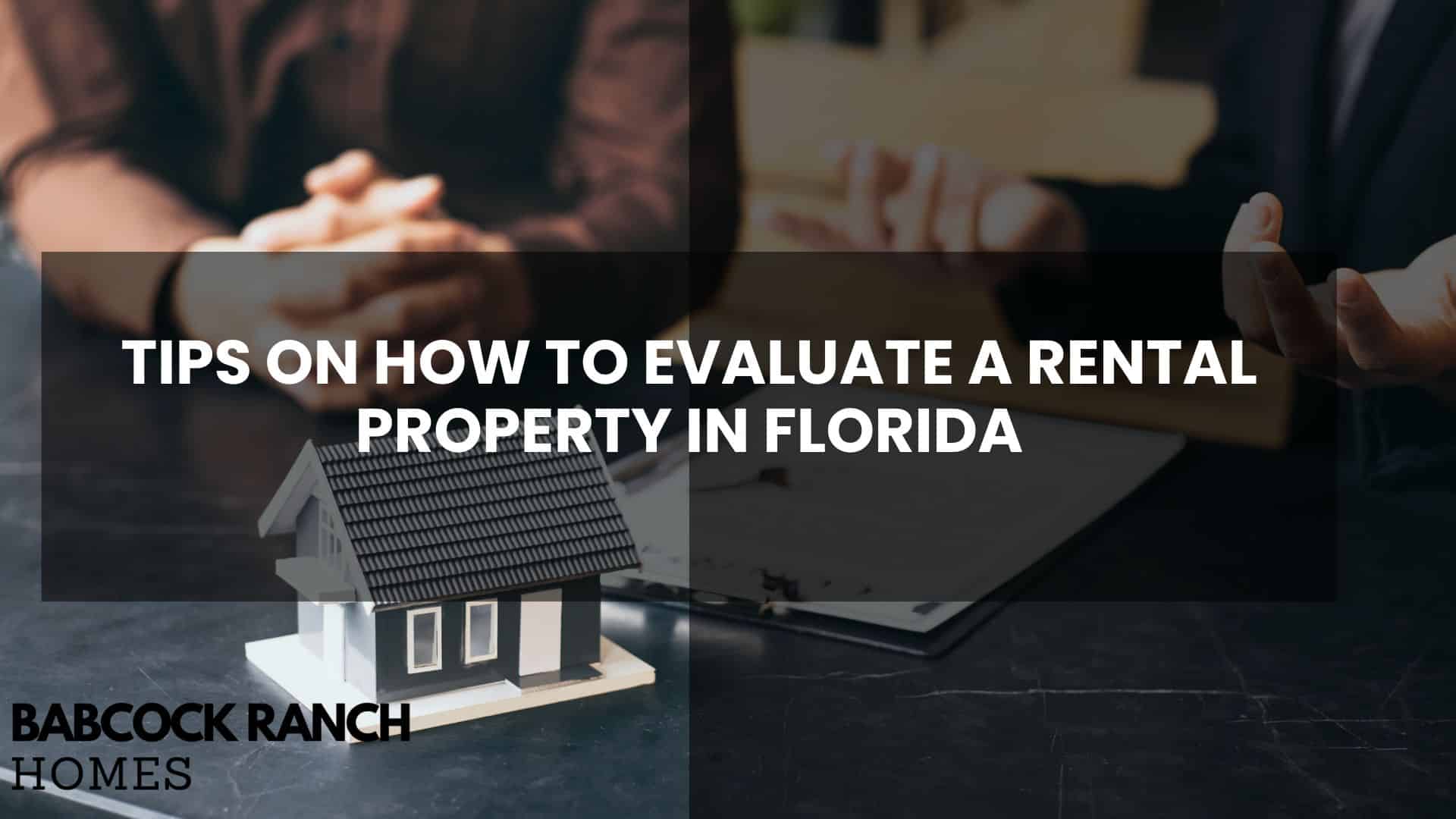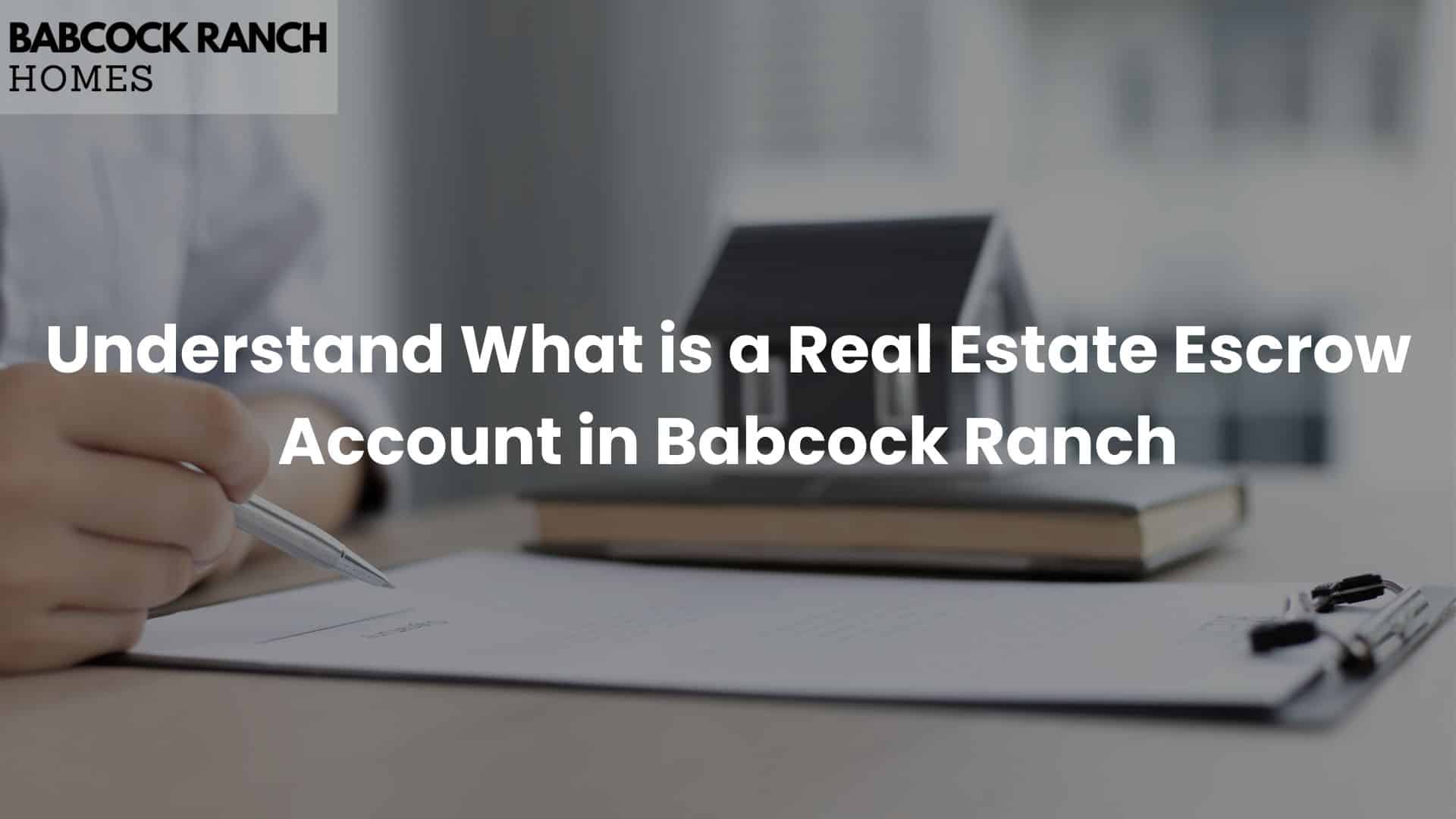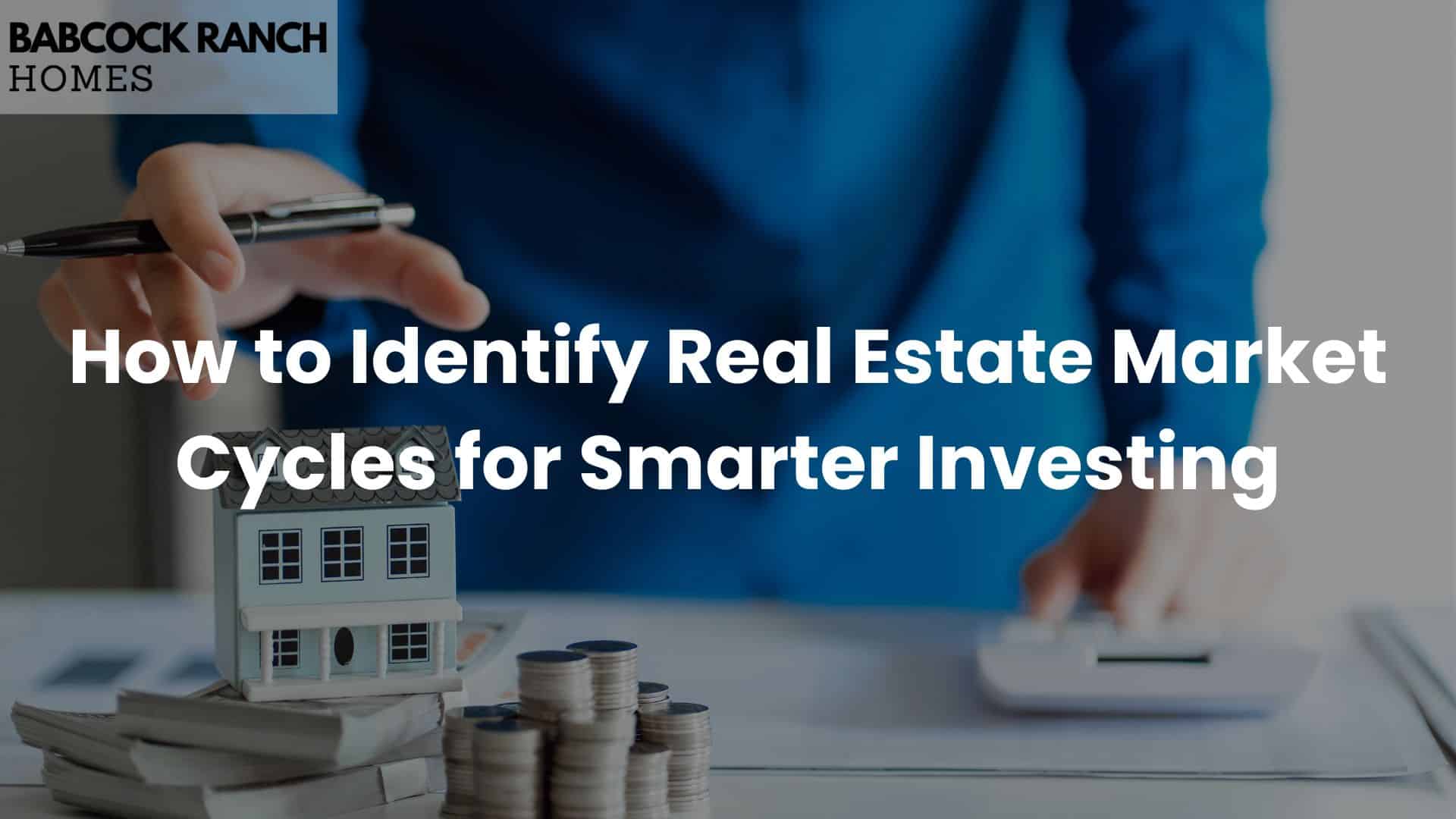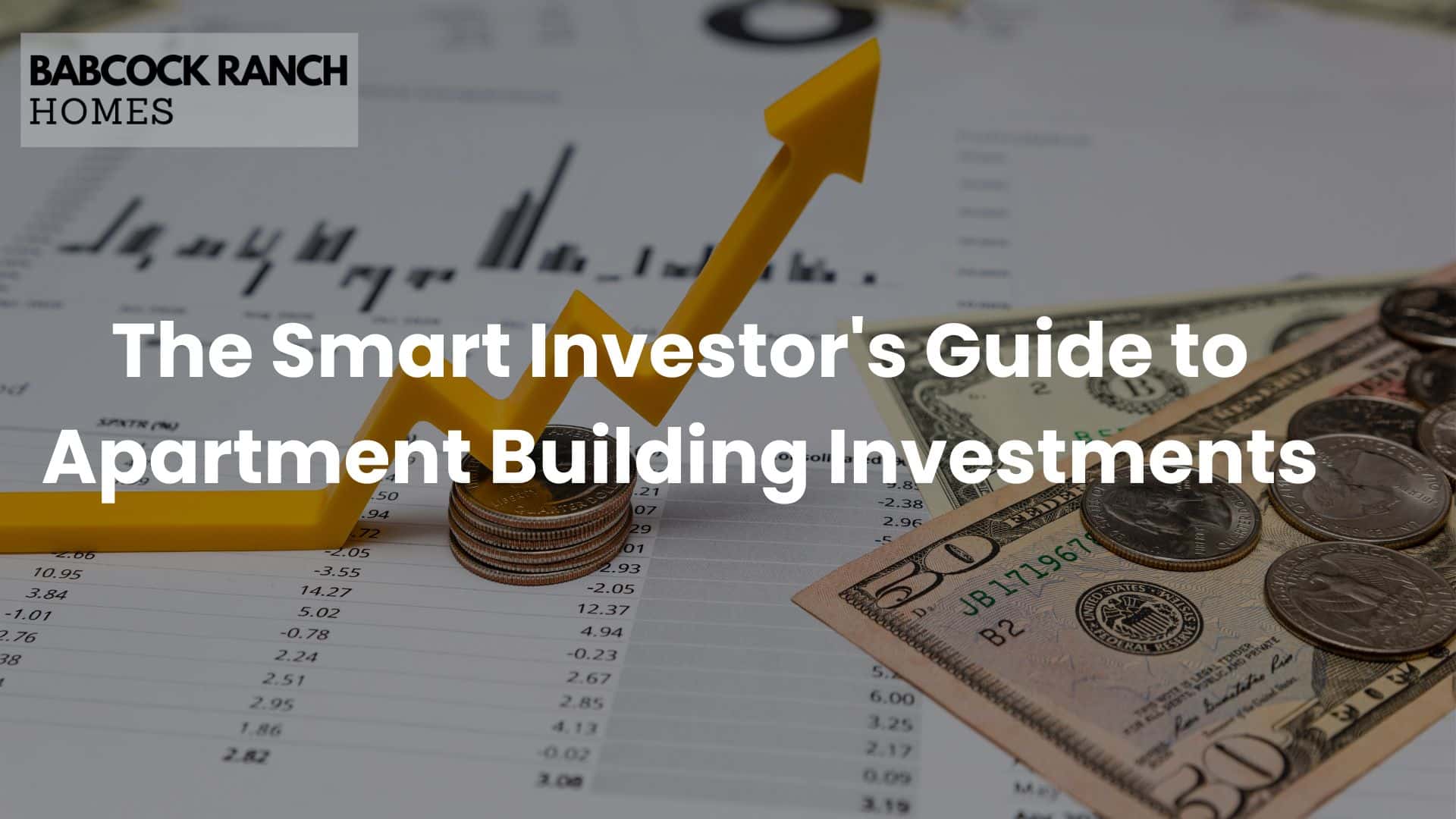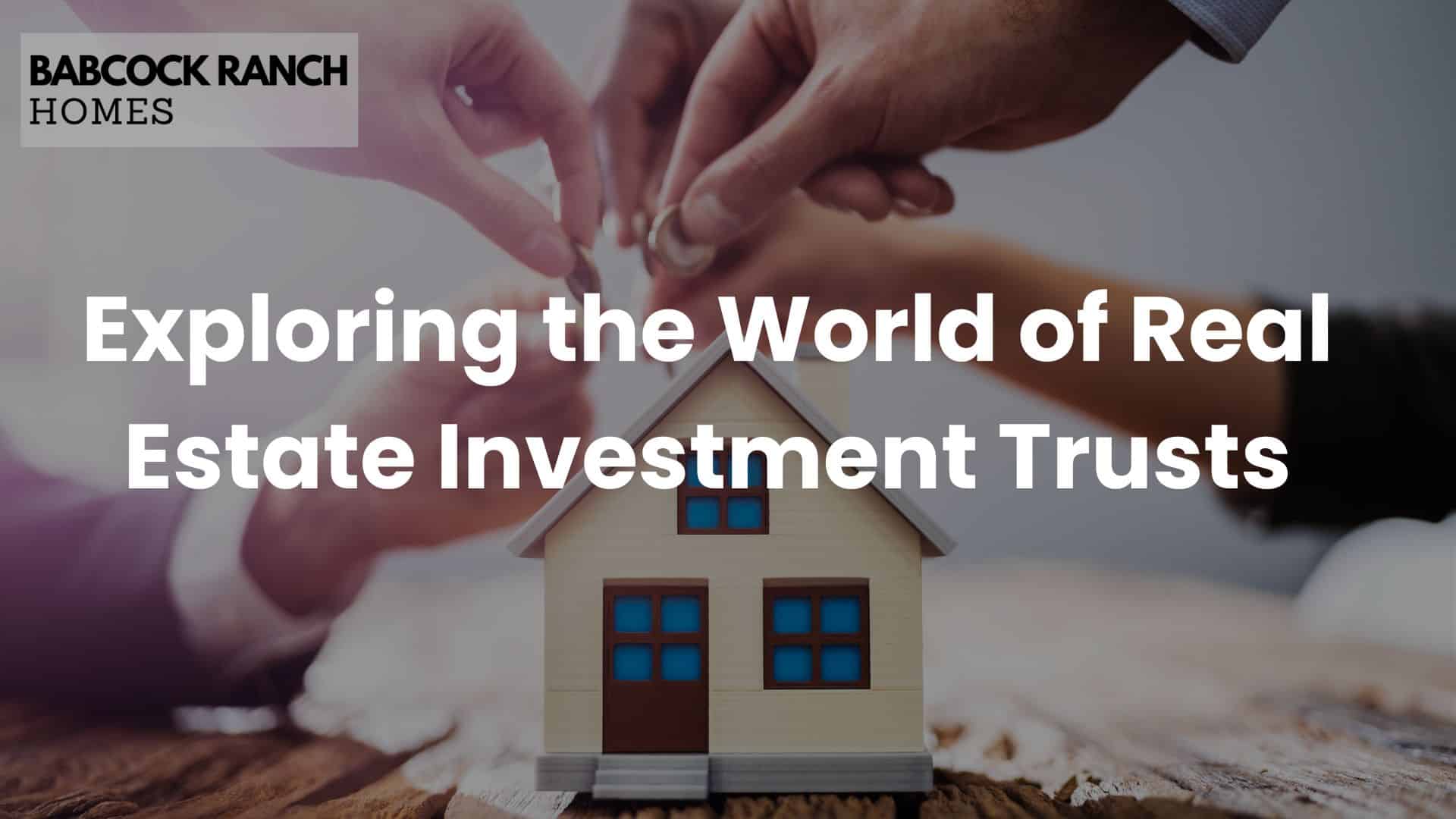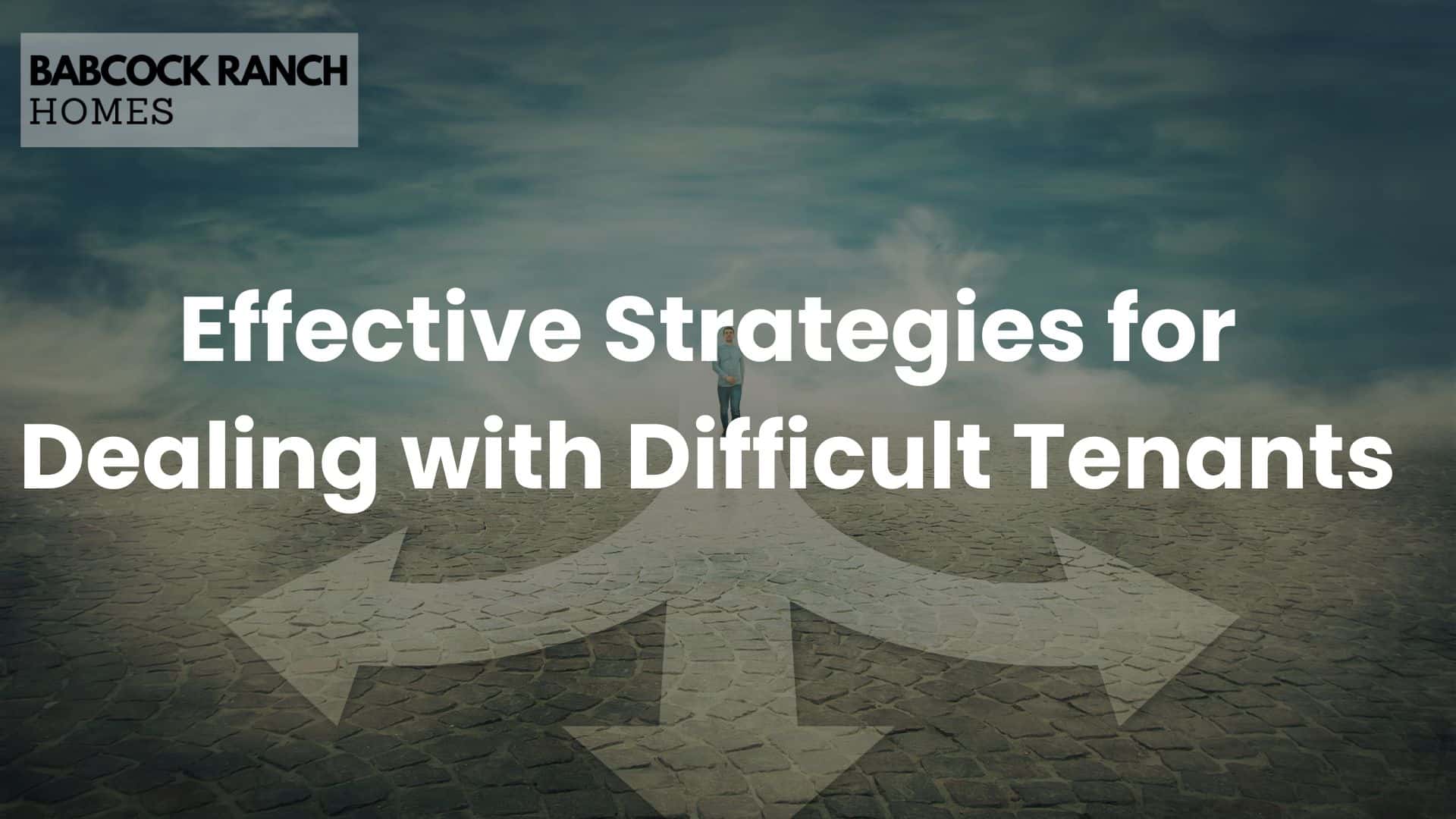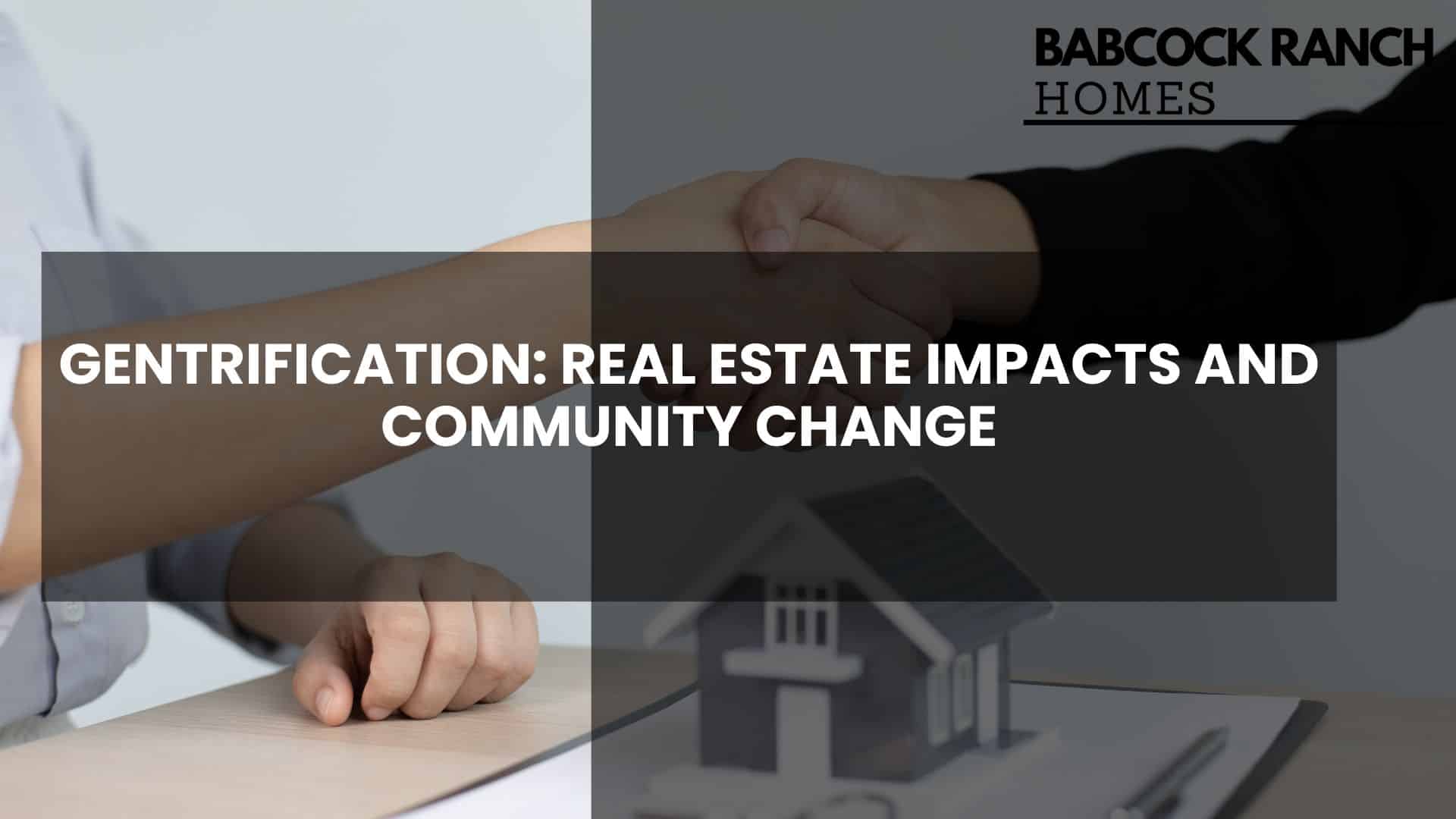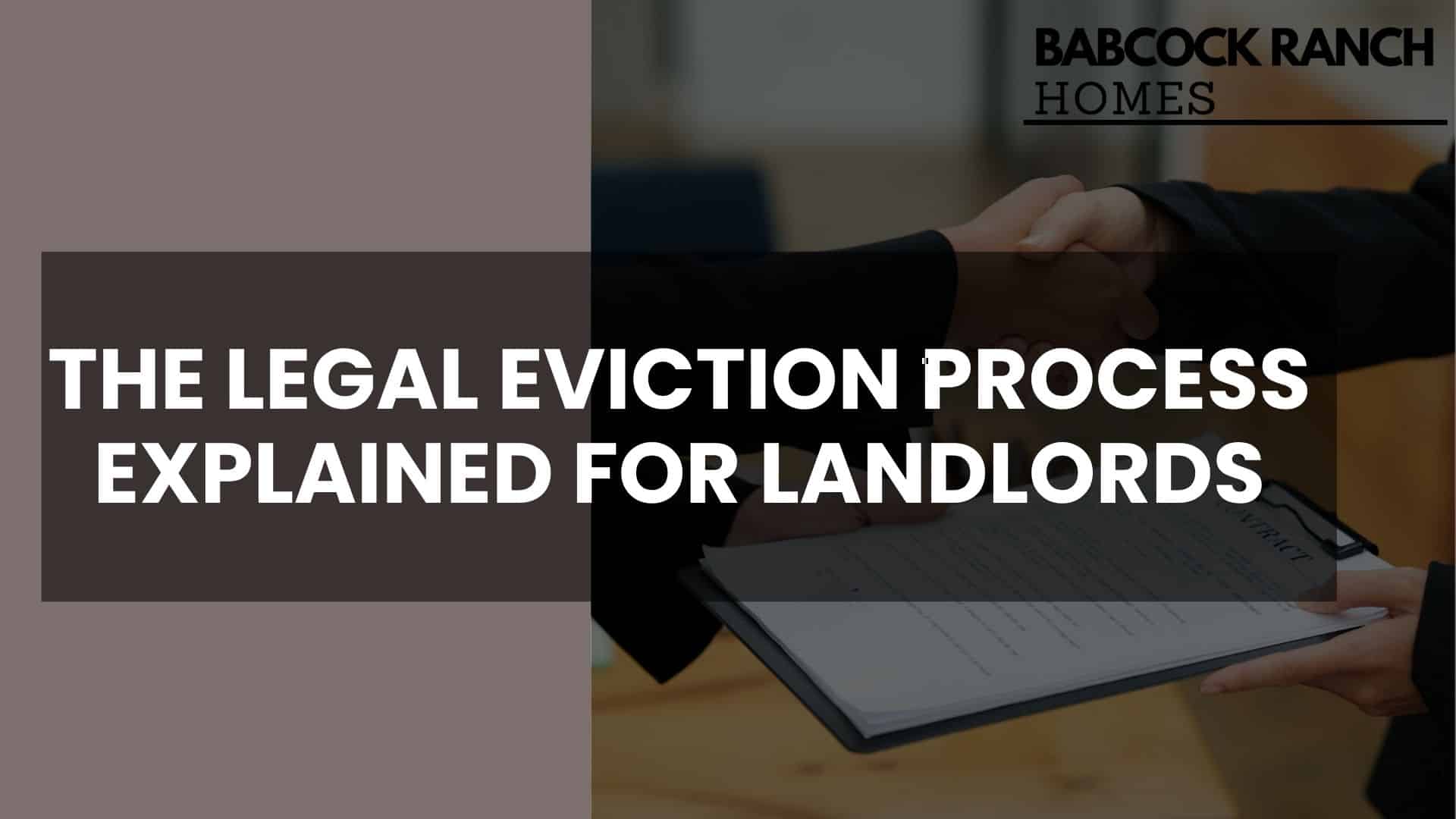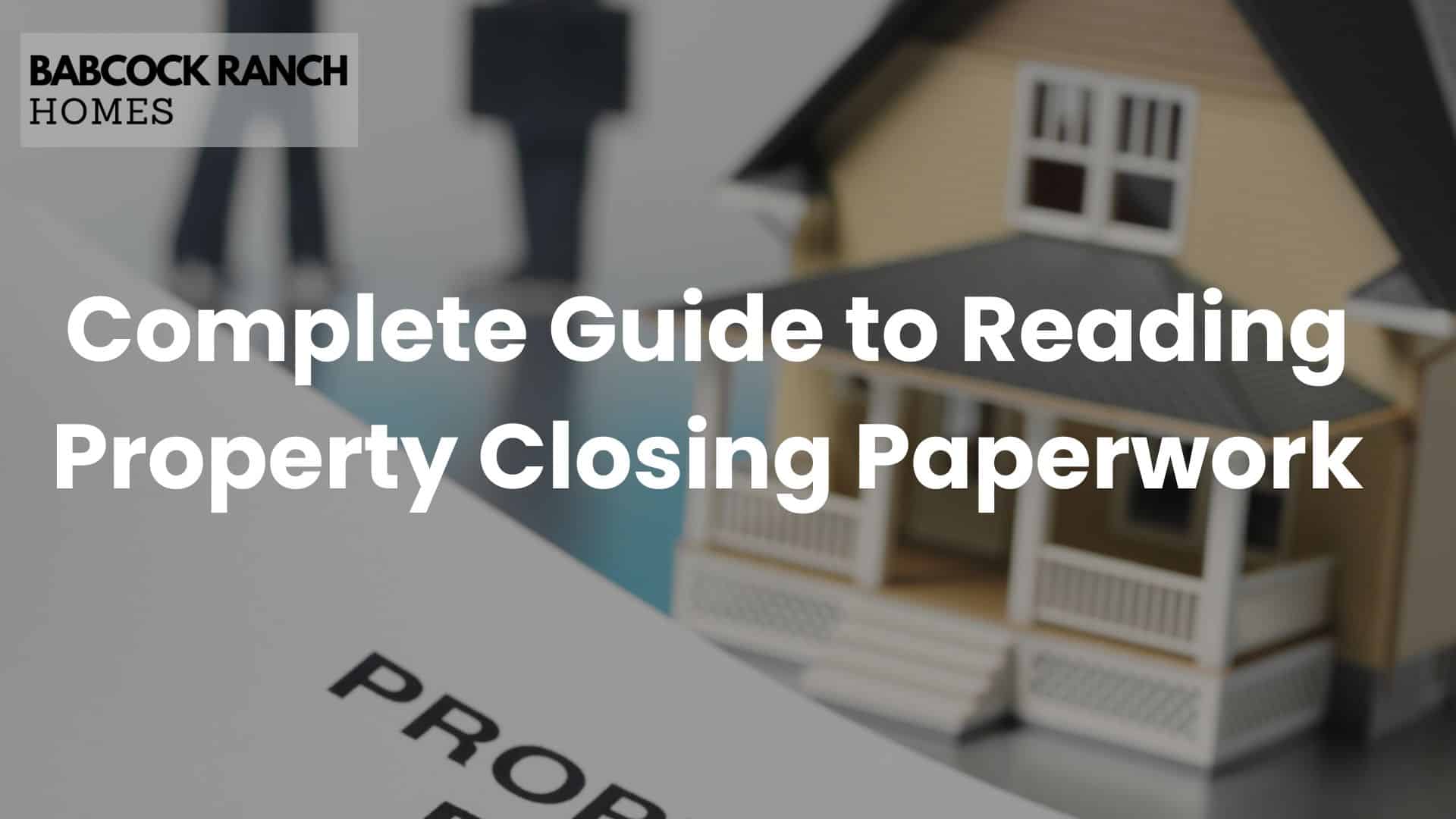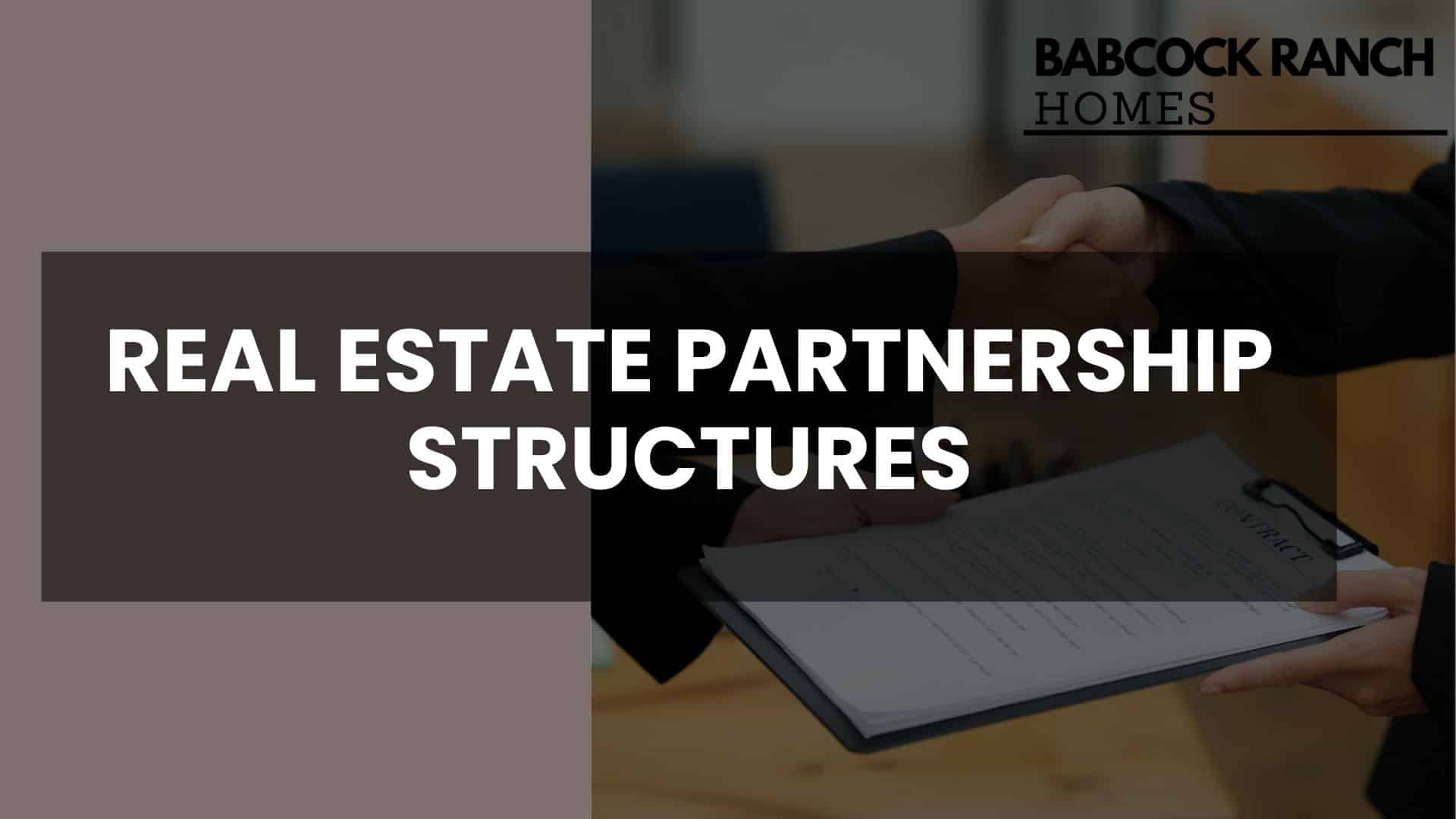Understanding the foreclosure process can be tough. But, knowing the right steps can turn a tough real estate deal into a great investment. In 2024, over 320,000 foreclosure filings happened in the U.S. This gives homebuyers a chance to find unique deals.
Buying a foreclosed home needs special knowledge and planning. Babcock Ranch Homes offers expert advice to help you buy a foreclosed property. This is true whether you’re buying your first home or you’re a seasoned investor.
The foreclosure process has big benefits for buyers. You can find homes at big discounts. By learning how to buy a foreclosed home, you can take advantage of these chances.
Key Takeaways
- Understand the current foreclosure market landscape
- Prepare financially for possible property repairs
- Research local foreclosure processes and regulations
- Get mortgage preapproval before starting your search
- Work with experienced real estate professionals
- Plan for extra renovation costs
- Be ready for competitive bidding situations
Understanding Foreclosure Properties
Foreclosed homes offer great deals for buyers and investors. They are part of a complex market that needs careful handling. Knowing how to navigate this area is key.

Foreclosed homes happen when homeowners can’t pay their mortgages. Banks then take back these properties. This process involves legal steps that change ownership from homeowners to banks.
What Is a Foreclosed Home?
A foreclosed home is taken back by a lender when the homeowner can’t pay. These homes are sold for less than their worth. This can be a good chance for buyers who are willing to put in effort.
- Typically sold below market rates
- Require thorough property assessment
- Often need significant renovations
Why Properties Enter Foreclosure
Many reasons lead to foreclosures, including:
- Unexpected job loss
- Medical emergencies
- Significant income reduction
- Excessive personal debt
“Foreclosures represent both financial challenges and possible investment chances” – Real Estate Insights 2025
Current State of Foreclosure Market
The foreclosure market has changed a lot due to the pandemic. With government help ending, more homes are being sold. About 30% of foreclosures are sold at auction, and 70% are bank-owned.
Investors and first-time buyers need a smart plan for bank-owned properties. About 40% of these homes need repairs, costing $10,000 to $50,000 on average.
Key Considerations for Buyers:– Do detailed property checks
– Know the repair costs
– Check the market value
– Be ready for bidding wars
Types of Foreclosure Sales

Understanding foreclosure sales is key for investors and homebuyers. There are several paths to getting distressed properties.
The main types of foreclosure sales are:
- Pre-foreclosure homes: Properties where owners are behind on mortgage payments but haven’t yet been seized by the bank
- Short sales: Transactions where lenders accept less than the total mortgage balance
- Public foreclosure auctions
- Bank-owned (REO) properties
Pre-foreclosure homes offer a chance to buy before the bank takes over. Buyers can work directly with the homeowner.
Short sales are another way to buy distressed properties. Here, lenders agree to sell for less than the mortgage balance. This can lead to good deals for buyers.
| Sale Type | Buyer Advantages | Potential Challenges |
|---|---|---|
| Pre-foreclosure homes | Direct negotiation with owner | Complex legal paperwork |
| Short sales | Potential below-market pricing | Extended approval process |
| Foreclosure auctions | Quick property acquisition | Cash payment required |
| Bank-owned properties | Transparent sales process | Potential property condition issues |
Foreclosure auctions are a fast way to buy properties. They happen when lenders take back the property. Buyers need cash and must research the property well.
Bank-owned or Real Estate Owned (REO) properties are another option. These homes have gone through foreclosure and are now managed by banks.
Benefits of Purchasing Foreclosed Properties
Buying foreclosed properties is a smart move for real estate investors. These homes offer great chances for those looking for a good deal in today’s market.
Looking into the benefits of buying foreclosures shows several key advantages:
- Significant price reductions compared to traditional market listings
- Potential for substantial investment returns
- Unique market opportunities in diverse real estate sectors
Lower Purchase Prices
Foreclosed homes usually sell for discounted rates, 10% to 30% less than market value. This makes them a great starting point for investors. Buyers can get properties at lower costs, which can lead to higher profits.
Investment Opportunity
Smart investors see foreclosures as chances to make money. The right property can become a goldmine with the right fix-up and timing.
| Investment Metric | Potential Value |
|---|---|
| Average Price Discount | 15-30% |
| Potential Return on Investment | 20-50% |
| Typical Renovation Costs | $20,000-$50,000 |
Market Opportunities
Buying foreclosures lets investors take advantage of special market situations. With more foreclosures around, smart buyers can find great deals.
“Foreclosed properties represent more than just a purchase—they’re an opportunity to create value in the real estate market.” – Real Estate Investment Expert
Investors should do their homework before buying foreclosures. While there are good chances, knowing the challenges is key to success.
How to Buy a Foreclosed Home
Buying a foreclosed home needs careful planning and a good understanding of the foreclosure process. Both investors and homebuyers can find great deals. But, success comes from being well-prepared and knowing the market well.
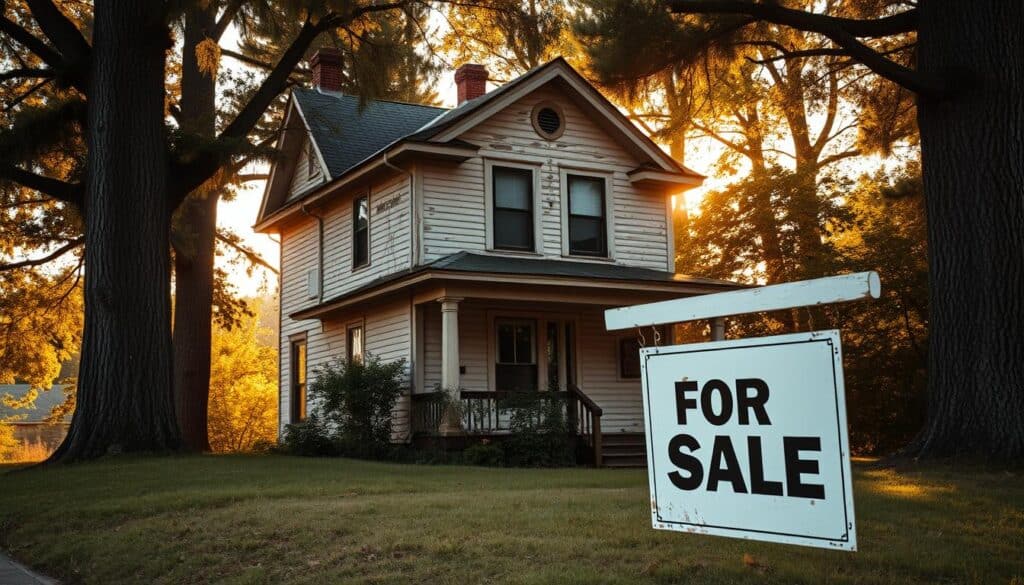
- Research local foreclosure markets
- Secure mortgage preapproval
- Evaluate property conditions
- Calculate possible repair costs
- Develop a competitive bidding strategy
Knowing important financial details is key. Investors look for homes priced at 80% or less of market value, minus repair costs.
| Buying Strategy | Recommended Approach |
|---|---|
| Market Value Calculation | 80% of appraised value – repair costs |
| Down Payment | 10-20% recommended |
| Emergency Fund | 3-6 months’ expenses |
Buyers should be ready for as-is properties. Many foreclosed homes need a lot of repairs. So, it’s important to inspect the property well. Credit scores between 500-670 can help get a mortgage, helping different financial situations.
Patience and strategic planning are key when navigating the foreclosure process.
Knowing about state-specific rules and auction regulations is important. It helps buyers make smart choices in this unique market.
Finding Foreclosure Listings
Real estate investing needs smart access to foreclosure listings. Finding the right properties can boost your investment by showing unique market chances.
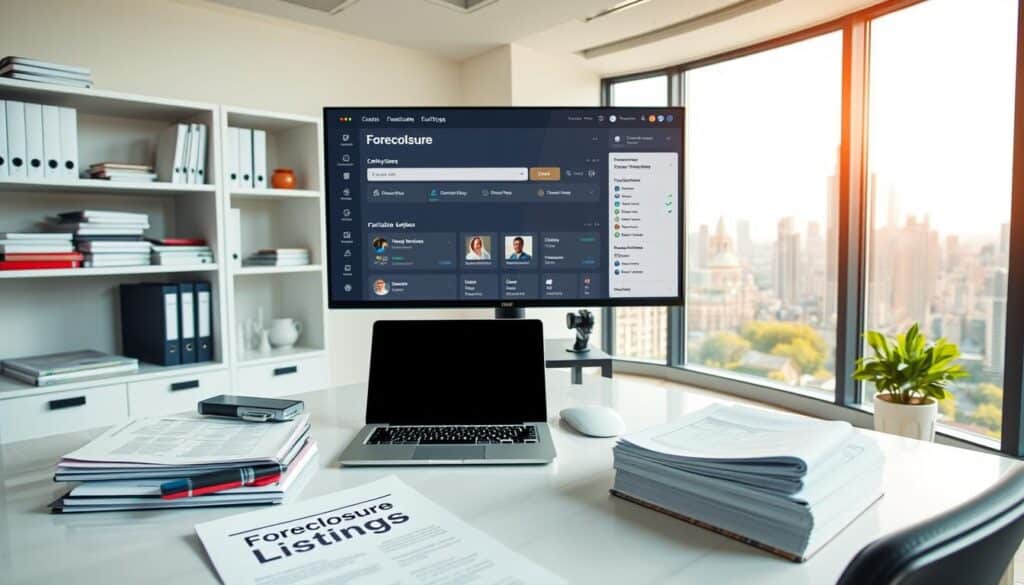
Finding foreclosure listings needs a mix of methods. Investors use several key tools to find good properties:
- Online foreclosure databases
- Bank-owned property websites
- Government agency platforms
- Real estate agent networks
Online Resources and Databases
Online tools have changed how we search for foreclosure listings. Sites like RealtyTrac, Zillow, and Foreclosure.com have big databases of investment properties.
| Platform | Key Features | Cost |
|---|---|---|
| RealtyTrac | Extensive foreclosure inventory | Subscription-based |
| Zillow | Free basic listings | Free |
| Foreclosure.com | Nationwide property database | Monthly fee |
Bank-Owned Property Lists
Big banks like Bank of America and Citibank have online lists of foreclosed homes. These lists give direct access to real estate investing chances.
Working with Real Estate Agents
Special real estate agents are key in finding foreclosure listings. They use the Multiple Listing Service (MLS) to find properties not listed online.
Professional agents help navigate complex foreclosure markets and find hidden gems.
Success in finding foreclosure listings comes from patience, research, and networking. It’s about using many platforms and professional resources.
Financial Preparation for Foreclosure Purchase

Buying foreclosures needs smart financial planning. Real estate investing, including foreclosures, requires careful preparation. It’s important to understand the financial side of these deals.
Starting with strong financial readiness is key. Investors should look at several important financial points:
- Get mortgage pre-approval
- Have enough cash on hand
- Know about renovation financing
- Plan for extra costs
Mortgage pre-approval shows you’re serious. Lenders want to see your financial details to check if you can invest.
“Preparation is key in foreclosure real estate investing. Know your financial limits before entering the market.”
There are many financing options for foreclosed homes:
| Loan Type | Best For | Key Features |
|---|---|---|
| Conventional Mortgage | Standard Property Conditions | Traditional financing |
| FHA 203(k) Loan | Properties Needing Repairs | Includes renovation costs |
| HomeStyle Renovation Mortgage | Extensive Renovations | Flexible renovation funding |
Be ready for extra costs. Foreclosed homes often need quick repairs or updates. It’s wise to save 10-20% more than the purchase price for unexpected expenses.
With the right research and planning, buying foreclosures can be a smart move in real estate investing.
Important Steps Before Making an Offer
Buying a foreclosed home needs careful planning and smart research. The foreclosure process is complex and requires a deep dive to protect your investment. It’s key to understand the steps before making an offer.
Exploring foreclosure properties needs a structured approach. Buyers must do thorough research to make smart choices.
Property Research Strategies
Effective research includes several important steps:
- Check the property’s condition with detailed inspections
- Look into the property’s history
- Study the neighborhood’s market trends
- Find out about any repair costs
Title Search Requirements
A detailed title search is vital in the foreclosure process. It helps uncover any liens, unpaid taxes, or legal issues that could affect your purchase.
| Title Search Component | Potential Issues | Recommended Action |
|---|---|---|
| Property Liens | Unpaid contractor work | Verify complete clearance |
| Tax Status | Delinquent property taxes | Confirm tax compliance |
| Legal Restrictions | Potential ownership disputes | Professional legal review |
Market Value Assessment
Finding the right property value is key. A comparative market analysis (CMA) is recommended. It helps evaluate:
- Recent sales of similar properties
- Local market trends
- The property’s condition
- Possible renovation costs
By carefully researching and assessing foreclosed properties, buyers can make smart choices. This approach helps avoid risks and boosts investment returns.
Navigating the Bidding Process
Buying foreclosures needs careful planning and knowing the bidding scene. Auctions can be tough for those not ready. It’s important to have a solid plan and know what to expect.
To win at foreclosure auctions, you must do your homework and be financially ready. With over 320,000 foreclosures in the U.S. in 2024, there are many chances to find good deals.
Critical Bidding Strategies
- Set a strict maximum bid limit to prevent emotional overspending
- Research property values thoroughly before auction day
- Understand local market conditions
- Prepare cash or financing documentation in advance
Cash buyers are big in foreclosure markets, making up a lot of bids. They use their money to buy properties fast.
Bidding Preparation Checklist
| Preparation Step | Details |
|---|---|
| Market Analysis | Review 180 days of local sales data |
| Property Evaluation | Estimate possible repair costs ($10,000-$50,000 range) |
| Financing | Secure cash or pre-approved financing |
Pro Tip: Foreclosures can be cheaper by 10-30% than market value. But, about 60% might need a lot of work. Always plan for repair costs.
Foreclosure auctions are competitive, so you must be quick and sure. Knowing about redemption periods, liens, and property conditions will help your strategy.
Understanding “As-Is” Properties
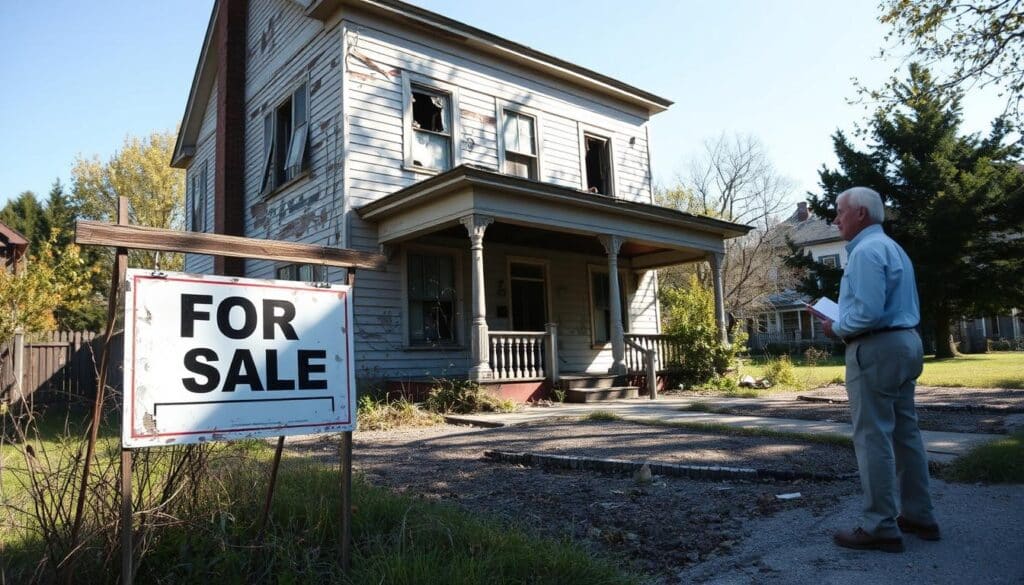
Buying foreclosures comes with its own set of challenges. When properties are sold “as-is,” the seller doesn’t promise their condition. This means the buyer must be ready to face any risks.
Inspection Considerations
For as-is properties, a detailed inspection is key. Buyers need to find out about any issues that could affect the home’s value and safety. Important things to check include:
- Structural integrity assessment
- Electrical system evaluation
- Plumbing condition check
- Roof and foundation examination
Common Property Issues
Distressed properties often have several problems. These can range from water damage to outdated systems. Common issues include:
- Extensive water damage
- Neglected maintenance
- Potential vandalism
- Outdated electrical systems
- Possible mold or pest infestations
Repair Cost Estimation
Knowing the repair costs is vital when buying foreclosures. Buyers should plan for renovations by:
- Getting professional contractor estimates
- Conducting thorough property inspections
- Setting aside additional funds for unexpected repairs
- Comparing repair costs against the property’s value
Pro tip: The average home inspection costs between $296 and $423. It’s a small price to pay for knowing a property’s true condition.
Remember: While as-is properties can save money, they need careful research and a readiness to invest in repairs.
Legal Considerations and Requirements

Buying foreclosures involves understanding legal complexities. Investors need to grasp the legal landscape of these unique deals.
Important legal points in foreclosure buying include:
- Understanding state-specific foreclosure regulations
- Conducting thorough title searches
- Handling possible property liens
- Managing occupancy issues
Different states have their own rules for foreclosure sales. For example, New Jersey uses a judicial foreclosure process that needs court help. Homeowners get 30 days to fix loan defaults after a Notice of Intent to Foreclose.
| Legal Aspect | Potential Risk | Recommended Action |
|---|---|---|
| Title Search | Undisclosed Liens | Professional Title Insurance |
| Property Occupancy | Unauthorized Residents | Legal Eviction Procedures |
| Property Condition | Extensive Damages | Comprehensive Inspection |
Buying foreclosures well requires smart legal planning. Investors should think about hiring real estate lawyers who know foreclosure law. This can help avoid big risks.
With over 320,000 foreclosure filings in the U.S. in 2024, knowing the law is key for buyers looking for good deals.
Working with Real Estate Professionals
Real estate investing, including foreclosures, is complex. It needs a smart plan and expert help. The right team can turn a good investment into a great one.

Building a team of experts is key for foreclosed property deals. Each member offers special skills. They help you make smart choices and avoid big problems.
Choosing a Foreclosure Specialist
When picking a real estate agent for foreclosures, look for their experience. Important qualities include:
- Proven track record in real estate investing
- Deep understanding of the local foreclosure market
- Strong negotiation skills
- Comprehensive network of industry contacts
Legal Representative Requirements
A good lawyer is vital for your protection in foreclosure deals. They help:
- Verify property titles
- Identify legal issues
- Review complex contracts
- Deal with liens or tax problems
Property Inspector Selection
Picking a skilled property inspector is essential. A detailed inspection can uncover hidden problems. Look for inspectors with:
- Certifications from recognized organizations
- Experience with foreclosed properties
- Detailed reporting skills
- Knowledge of local building codes
By choosing experts who know foreclosure well, you can invest with more confidence. This reduces the risk of big losses.
Financing Options for Foreclosed Homes
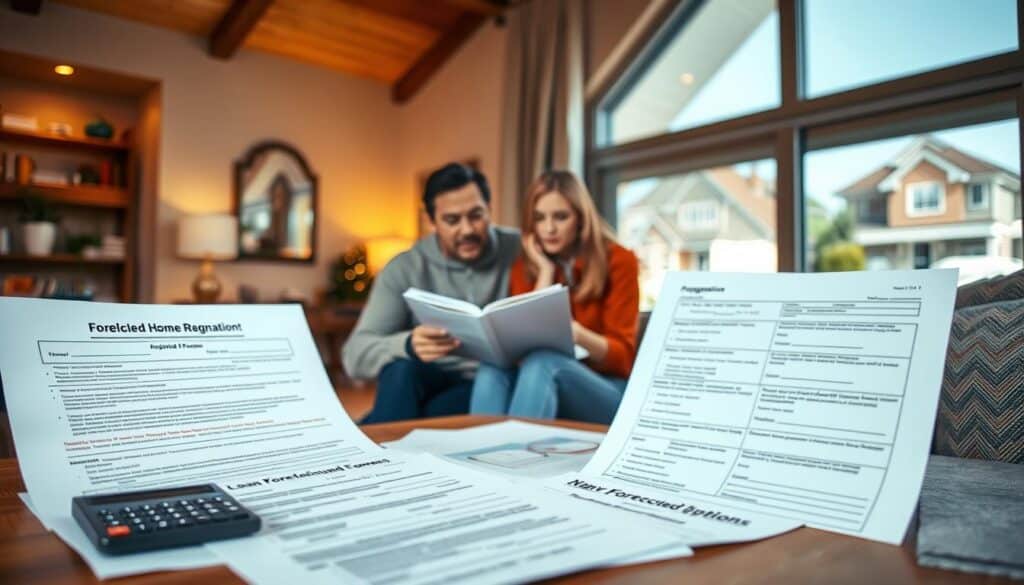
Buying foreclosed homes requires smart planning and knowing your mortgage options. Investing in real estate with foreclosed properties needs careful financial planning. This helps to get the best returns.
There are many ways to finance when buying foreclosed homes:
- Conventional Mortgages
- FHA Loans
- VA Loans
- USDA Rural Development Loans
- Renovation-Specific Loans
The FHA 203(k) loan is a great choice for real estate investing. It lets buyers finance the home and repairs in one loan. This loan can cover up to $35,000 for repairs, making it perfect for fixing up foreclosures.
Government-backed loans have special benefits for buying foreclosures:
- FHA Loans: Down payments as low as 3.5%
- VA Loans: Zero down payment for veterans
- USDA Loans: Low or no down payment in rural areas
Cash purchases are also a smart move in foreclosure markets. Many investors use cash to stand out, as it makes deals quicker. Banks like cash offers because they are simple and fast.
Knowing your financing options is key to real estate success. Buyers should think about their finances, credit score, and investment goals. This helps choose the right mortgage for them.
Conclusion
Learning to buy a foreclosed home needs careful planning and research. Investing in foreclosed properties can be rewarding for those who are ready for challenges. It’s important to understand the market, prepare financially, and do your homework.
Foreclosure rates are around 1 in every 1,500 homes in 2023. This means buyers have a few chances to find a good deal. Buying a foreclosed home can save you 10% to 30% compared to regular homes, making it a smart choice for those watching their budget.
At Babcock Ranch Homes, we suggest looking at foreclosures with both eyes open. There are risks like repair costs and getting a loan, but smart buyers can find great deals. Our team is here to help you every step of the way, with advice and support tailored just for you.
Want to check out foreclosure deals? Call Babcock Ranch Homes at 518-569-7173. Based in Babcock Ranch, Florida, our experts are ready to turn your real estate dreams into reality. Start your journey to owning a foreclosed home with the right knowledge and support.

